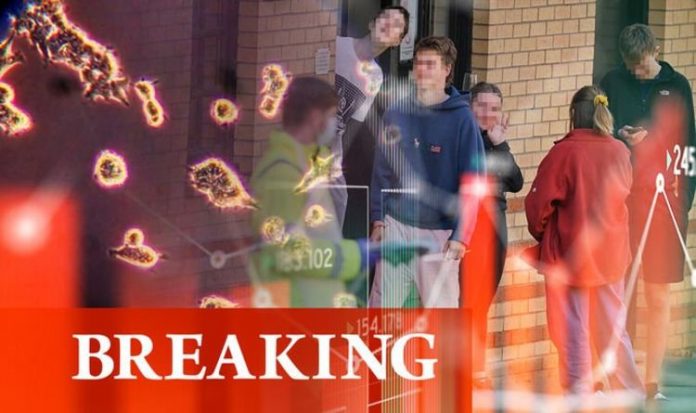And Independent SAGE believes while the Government’s latest restrictions aimed at slowing the spread of COVID-19 have “bought some time”, without an affective system of testing they are “pointless”. SAGE’s analysis was released prior to its regular Friday briefing, coming on the day US President Donald Trump confirmed he and First Lady Melania had both contracted the virus.
Infection rates are currently highest among 17-24 year olds and at least 45 UK universities are tackling COVID-19 outbreaks.
However, Professor Susan Michie of University College London (UCL), said it was unfair to blame outbreaks at university campuses on students flouting social distancing rules.
She said: “With young people arriving from different parts of the country into shared accommodation it’s created a human petri dish.
How is Boris Johnson handling the coronavirus crisis? Vote in our poll
“It’s not down to students misbehaving, the situation was inevitable.”
Professor Christina Pagel, also of UCL, said the latest figures showed rates of infection nationally appeared to be “slowing but still growing”.
Increasing gaps were opening up between the north of England and the rest of the country, she said, with parts of the north witnessing rates of infection four times higher the national average.
JUST IN: ‘RESIGN!’ Sturgeon demands SNP MP Margaret Ferrier quit
“Restrictions without test and trace are pointless.”
Independent SAGE also expressed concern at the introduction of £10,000 fines for failing to self-isolate, with scientists fear it could act as a deterrent to people getting a test and disclosing details of their contacts.
Prof Reicher said: “We need to move away from a culture of blame to one of support.”
Two weeks ago the group issued a ten-point plan aimed at preventing the virus from spiralling out of control.
Prof Pagel told the briefing the nation was “not in a good place” and “on a knife edge”.
Neuroscientist Professor Karl Friston, also of UCL, warned: “The headline from the quantitative modelling of recent trends in new cases is clear: now is the time for ‘shoe-leather’ epidemiology.
“In short, a redeployment of resources away from remote ‘call centres’ to local and experienced public health teams who can find, monitor, and support people who have acquired the infection, and their contacts.
“Crucially, this kind of contact tracing can only be done effectively using local knowledge (eg cultural aspects), expertise and detective work.
“It is not dependent on an overstretched testing infrastructure – tests are an important adjunct to identifying cases and may be better deployed for the asymptomatic contacts of confirmed cases.”







